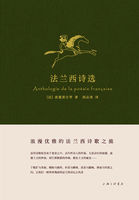differing from the 'actual value' was effected in ancient times by the registration of a 'rateable size' differing from the 'actual size'; lastly, the surveys and rolls of assessment do not keep time with the actual facts, and often reflect, by their figures and statistics, the conditions of bygone periods. The hides of the geld or of the 'wara' tend to become constant and rigid: it is difficult for the king's officers to alter their estimates, and the people subjected to the tax try in every way to guard against novelties and encroachments. The real agrarian hide-area is changing at the same time because the population increases, new tenements are formed, and new land is reclaimed.
We find at every step in our records that the assessment and the agrarian conditions do not coincide. If a manor has been given to a convent in free almoign (in liberam et perpetuam eleemosynam), that is, free from all taxes and payments to the State, there is no reason to describe it in units of assessment, and in fact such property often appears in manorial records without any 'hidation' or reckoning of knight-fees.(43*) The Ramsey Cartulary tells us that the land in Hulme was not divided into hides and virgates.(44*) There are holdings, of course, and they are equal, but they are estimated in acres. When the hidation has been laid on the land and taxes are paid from it, the smaller subdivisions are sometimes omitted: the artificial system of taxation does not go very deep into details. Even if most part of the land has been brought under the operation of that system, some plots are left which do not participate in the common payments, and therefore are said to be 'out of the hide'.(45*) Such being the case, there can be no wonder that one of the Ramsey manors answers to the king for ten hides, and to the abbot for eleven and a-half.(46*)It is to be noted especially, that although in a few cases a difference is made between the division for royal assessment and for the manorial impositions, in the great majority of cases no such difference exists, and the duties in regard to the king and to the lord are reckoned according to the same system of holdings. On the manors of Ely, for instance, the 12 acreware (47*) form the basis of all the reckoning of rents and work. And so if the royal assessment appear with the features of an artificial fiscal arrangement, the same observation has to be extended to the manorial assessment; and thus we reach by another way the same conclusion which we drew from an analysis of the single holding and of its component parts. No doubt the whole stands in close relation to the reality of cultivation and land-holding, but the rigidity, regularity, and correctness of the system present a necessary contrast to the facts of actual life. As the soil could not be made to fit into geometrical squares, even so the population could not remain without change from one age to the other within the same boundaries. Thus in course of time the plough-land of 160 and 180 acres, which is the plough-land of practical farming, appears by the side of the statutory hide of 120 acres; and so again inside every single holding there comes up the contrast between its real conformation and distribution, and the outward form it assumed in regard to the king, the lord, and the steward.
The inquiry as to the relation between the holding and the population on it is, of course, of the utmost importance for a general estimate of the arrangement. From a formal point of view the question is soon solved: on the one hand, the holding of the villain remains undivided and entire; it does not admit of partition by sale or descent; on the other, the will of the lord may alter, if necessary, the natural course of inheritance and possession; the socage tenure is often free from the first of these limitations, and always free from the second. The indivisibility of villain tenements is chiefly conspicuous in the law of inheritance: all the land went to one of the sons if there were several; very often the youngest inherited; and this custom, to which mere chance has given the name of Borough English, was considered as one of the proofs of villainage.(48*) It is certainly a custom of great importance, and probably it depended on the fact that the elder brothers left the land at the earliest opportunity, and during their father's life. Where did they go?
It is easy to guess that they sought work out of the manor, as craftsmen or labourers; that they served the lord as servants, ploughmen, and the like; that they were provided with holdings, which for some reason did not descend to male heirs; that they were endowed with some demesne land, or fitted out to reclaim land from the waste. We may find for all these suppositions some supporting quotation in the records. And still it would be hard to believe that the entire increase of population found an exit by these by-paths. If no exit was found, the brothers had to remain on their father's plot, and the fact that they did so can be proved, if it needs proof, from documents.(49*) The unity of the holding was not disturbed in the case; there was no division, and only the right heir, the estiopamon as they said in Sparta, had to answer for the services; the lord looked to him and no further; but in point of fact the holding contained more than one family, and perhaps more than one household. However this may be, in regard to the lord the holding remained one and undivided.
This circumstance draws a sharp line between the feudal arrangement of most counties and that which prevailed in Kent.
The gavelkind or tributary tenure there was subjected to equal partition among the heirs.
Let us take a Kentish survey, the Black Book of St.
Augustine's, Canterbury, for instance: it describes the peasant holdings in a way which differs entirely from other surveys. It begins by stating what duties lie on each sulung, that is, on the Kentish ploughland corresponding to the hide of feudal England.















